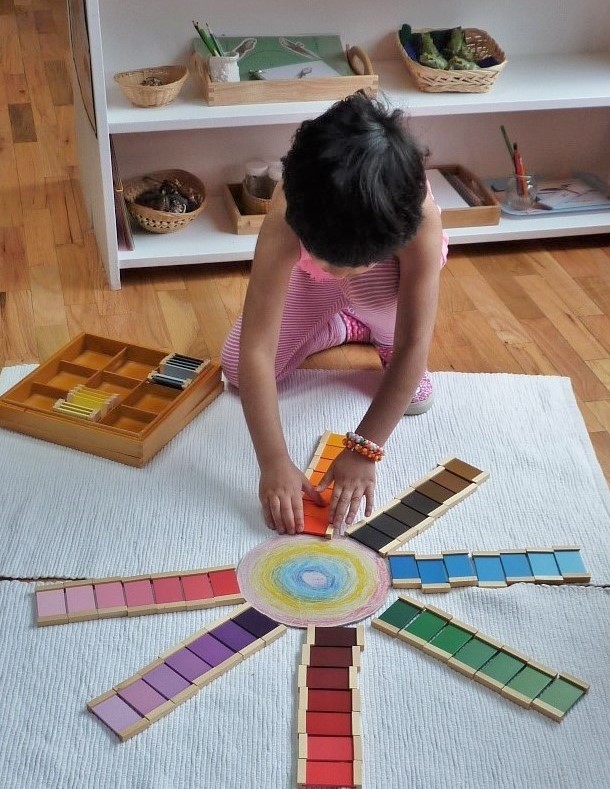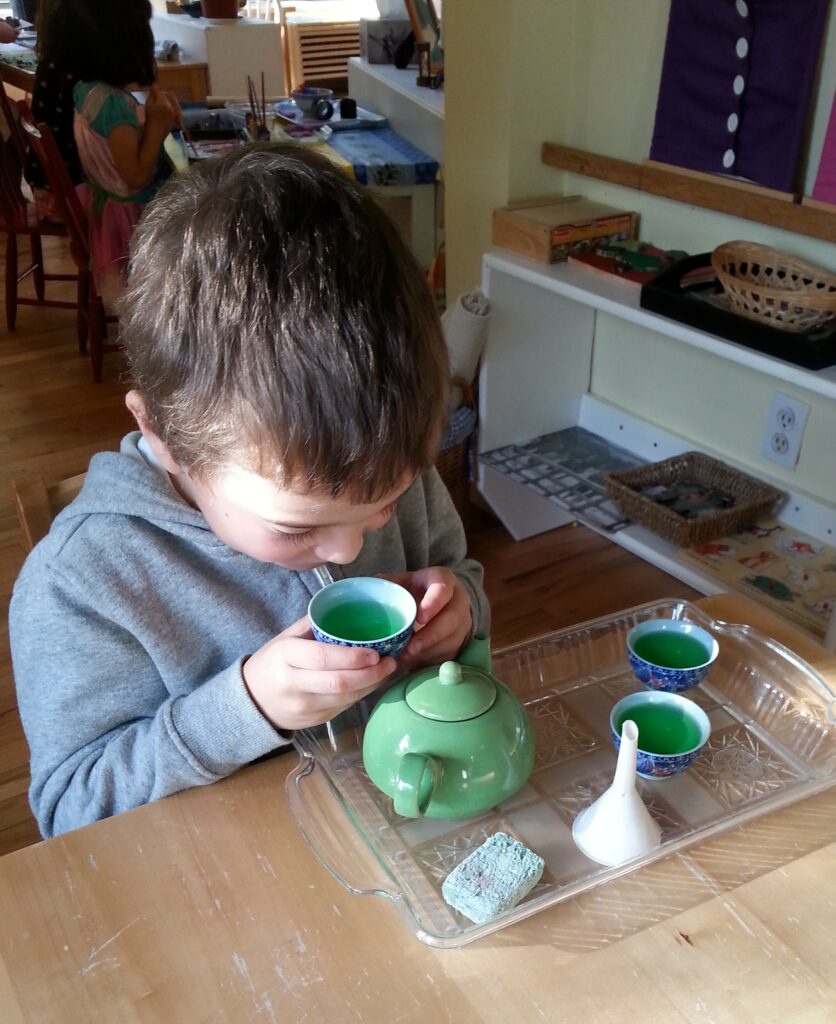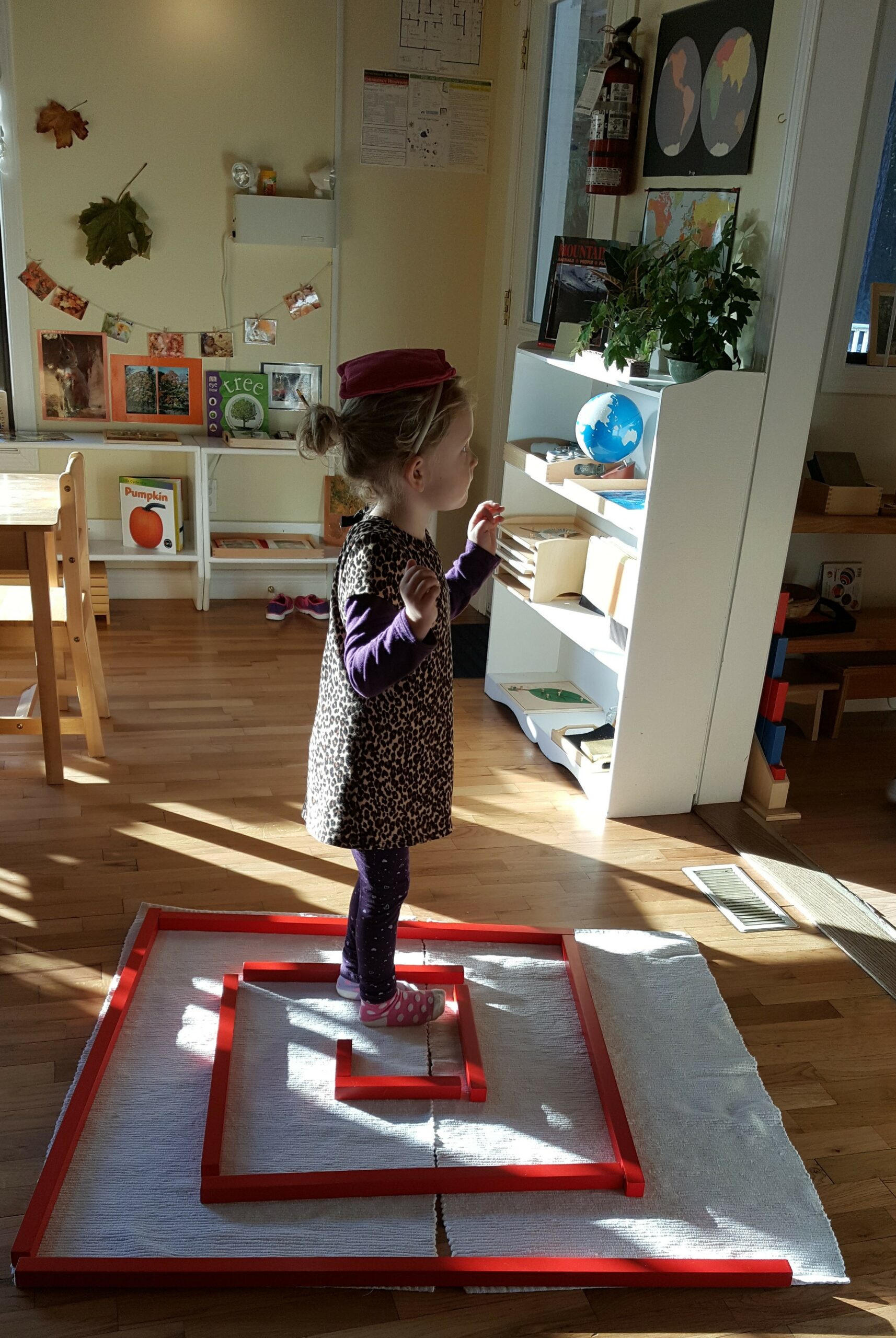Montessori education was founded in 1907 by Dr. Maria Montessori, the first woman in Italy to become a physician. She based her educational methods on scientific observation of children’s learning processes. Guided by her discovery that children teach themselves, Dr. Montessori designed a “prepared environment” in which children could freely choose from a number of developmentally appropriate activities.
Benefits of a Montessori Education
The Montessori environment and method of education encourages independence and self-discipline from an early age. The child works at his or her own pace and receives mainly individual instruction of new activities, based upon their unique interests and developmental level. The child is an active participant in their learning process. Mixed aged classes encourage collaboration rather than competition. The older children are supported in acting as mentors and role models for the younger, fostering an atmosphere of kindness and caring. Children are encouraged to solve problems and to make appropriate choices. The teacher, although an active observer of the children, has an unobtrusive role in the classroom.
Research has shown that the best predictor of future success is high self-esteem. Montessori programs, based on self-directed, non-competitive activities, help children develop strong self-images and the confidence to face challenges and change with optimism.




